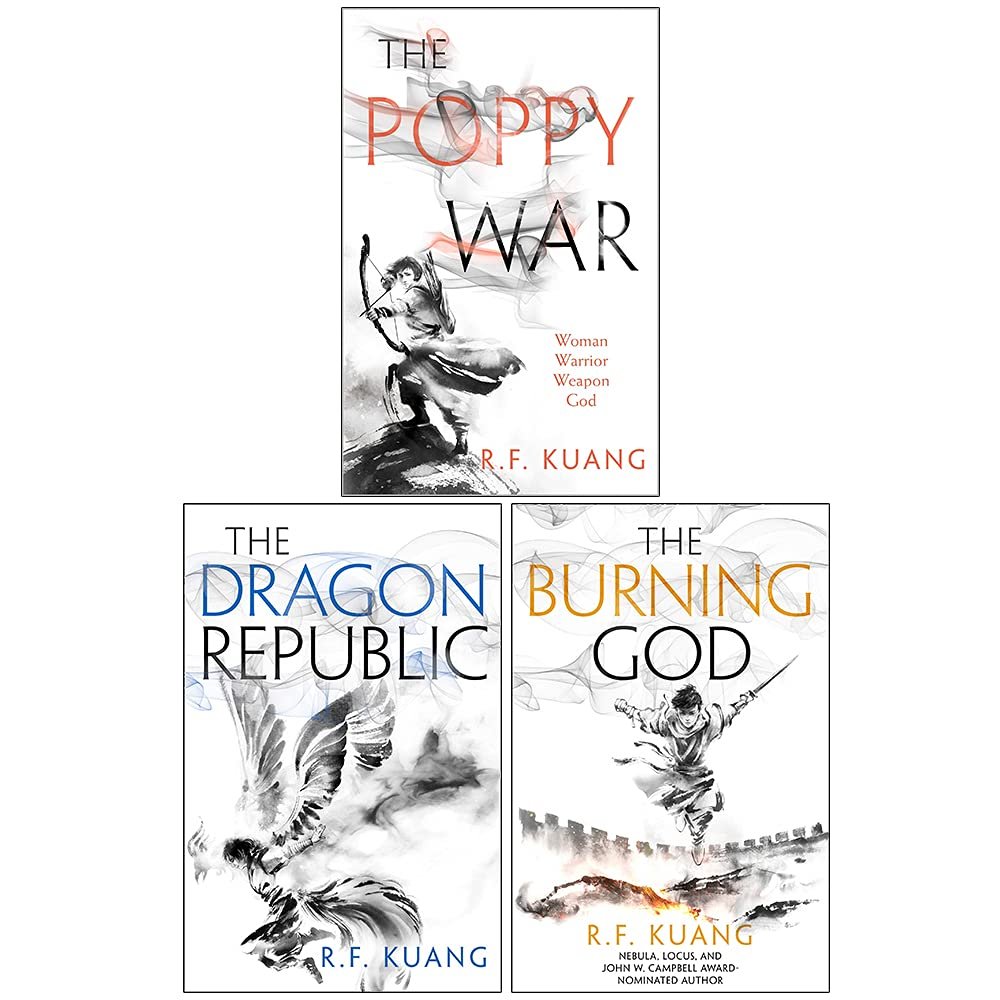A Journey Through the Ashes: A Review of R.F. Kuang’s The Poppy War Trilogy
From the moment I stumbled upon The Poppy War, I knew I was about to embark on a journey that would resonate long after I turned the last page. R.F. Kuang’s vivid storytelling and intense themes of war, identity, and trauma drew me in, and I quickly found myself ensnared by the oppressive atmosphere and richly developed characters. It wasn’t merely the allure of a well-crafted fantasy that captured my attention; it was the promise of an exploration into the darker corners of humanity cloaked within a military fantasy setting.
Key Themes and Characters: A Tapestry of Conflict
At its core, The Poppy War explores the cost of war—the brutalities that linger beyond the battlefield—and the burdens carried by those touched by violence. Kuang presents us with Rin, a complex protagonist whose tumultuous journey from a war orphan to a powerful Shaman is both captivating and unsettling. Rin’s inability to resonate as a traditional "heroine" is something I found refreshingly honest. She embodies raw emotion driven by trauma—an anti-heroine navigating a world marred by destruction and moral ambiguity.
As the story unfolds in The Dragon Republic and culminates in The Burning God, the narrative grows darker, plunging deeper into the destructive nature of power, betrayal, and complicity. I felt compelled by Kuang’s relentless examination of how every character—be it Rin, Nezha, or the dubious leaders of Nikara—mirrors the very flaws of humanity. Kuang is unflinching in her portrayal, showcasing that monsters can emerge from any corner, be it the aggressors or the oppressed.
Writing Style and Pacing: A Deep Dive into Grit
Kuang’s writing is sharp, evocative, and haunting. The pacing is methodically built; I often found myself racing through chapters, eager to uncover the next harrowing twist. Kuang doesn’t shy away from the grittiness of her world—each page is laden with profound realizations wrapped in poetic language that can be both beautiful and brutal.
One of the quotes that lingered with me was, “When you’re a child, you think the world is going to be perfect. Then you find out it’s just full of people trying their best.” This encapsulates Rin’s journey and resonates with anyone grappling with the harsh realities of adulthood. It reminded me that every character in this trilogy, no matter how flawed, is desperately reaching for something—be it redemption, power, or belonging.
Conclusion: A Recommended read for the Thoughtful Reader
I wholeheartedly recommend R.F. Kuang’s The Poppy War trilogy to readers who crave depth in their fantasy narratives. Those drawn to complex characters and morally ambiguous worlds will find themselves navigating a landscape that mirrors our own fraught human experience. It’s a trilogy that invites reflection, challenging our understanding of heroism, suffering, and the consequences of our choices.
The impact this trilogy had on me was profound, pushing the boundaries of my understanding of human nature and the intricacies of interpersonal relationships against a backdrop of war. As I closed the final book, I felt a mix of exhaustion and exhilaration, a testament to Kuang’s unyielding storytelling. I urge you to dive in, but be prepared for the weight it carries—it’s a journey worth taking.
Discover more about The Poppy War, The Dragon Republic, The Burning God (Th… on GoodReads >>







